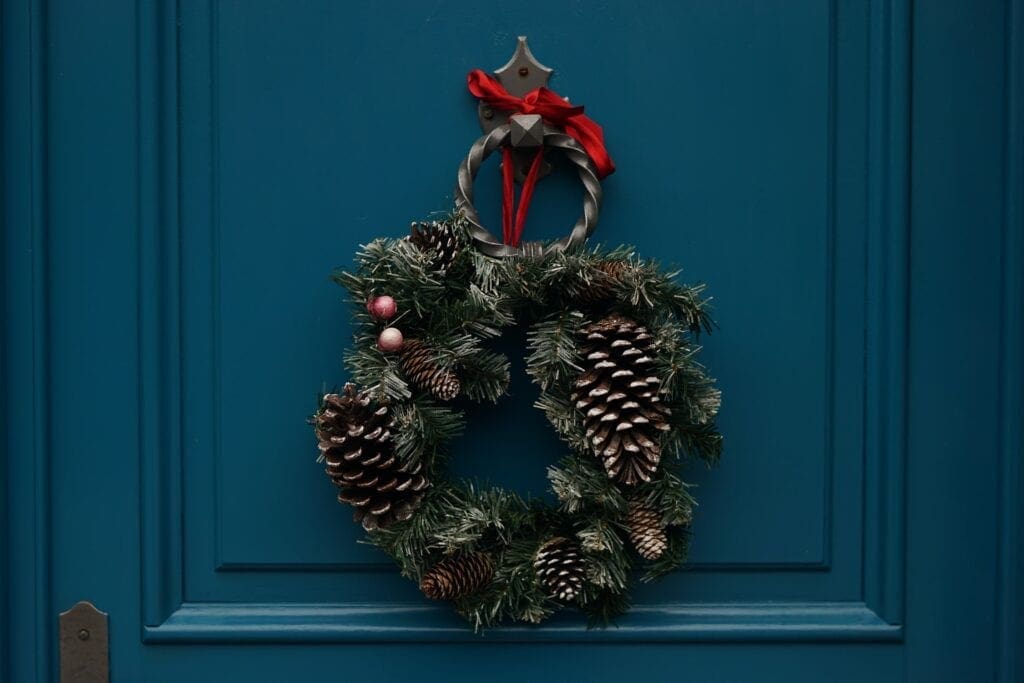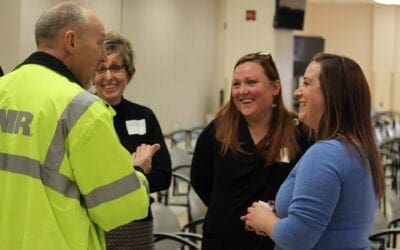Safely Celebrate the Holiday Season

The holiday season is upon us, but due to the ongoing COVID-19 pandemic, many of our traditions will look different. The safest way to celebrate the holidays is at home with the people you live with. If you do decide to get together with others, keep gathering small (10 people or fewer) and stick to the basics:
- Stay home if you have COVID-19, symptoms of COVID-19, are waiting for COVID-19 test results, or have been exposed to someone with COVID-19.
- Wear a mask when interacting with people who don’t live in your household.
- Maintain 6 feet of distance or more from people who don’t live in your household.
- Wash your hands with soap and water for at least 20 seconds or use hand sanitizer frequently.
- Disinfect commonly touched surfaces and any shared items.
Here are some suggestions for celebrating the holidays safely:
Hanukkah — December 10 to December 18
Hanukkah is the Jewish eight-day, wintertime “festival of lights,” celebrated with a nightly menorah lighting, special prayers, spinning four-sided tops called dreidels, gift-giving, and special foods fried in oil, including potato pancakes called latkes.
Safer Ways to Celebrate
- Organize a virtual menorah lighting with a local temple or with family members outside of your household.
- Have a latke making competition. Fry latkes for family and friends, package them in separate containers and drop them off. Do a virtual tasting and have a judge decide who makes the best.
- Organize a Hanukkah drive-by parade for your close family and friends.
- Drop off gifts ahead of time and hold virtual opening parties.
Las Posadas — December 16 to December 24
Las Posadas (the inns) commemorates the journey that Joseph and Mary made from Nazareth to Bethlehem in search of a safe refuge where Mary could give birth to the baby Jesus. It is celebrated in Latin America, Mexico, Guatemala, Cuba, Spain, and the United States.
The main tradition includes daily processions and visits to participating homes representing inns, with a celebration at the last stop. Celebrations include scripture readings and Christmas carols, star-shaped piñatas, and fireworks.
Safer Ways to Celebrate
- Pray the Rosary with relatives virtually or over the phone.
- Plan a virtual parade and “visit” each participant’s home.
- Drop off mini piñatas for family and friends.
- Record Christmas pageants at home to send to family members.
Nochebuena — December 24
Nochebuena (the good night) is celebrated the night of Christmas Eve every year. For Latin cultures, it is often the biggest feast for the Christmas season. Traditions include singing Christmas carols, piñatas, making a roasted pork dish, setting off fireworks, and playing dominoes.
Safer Ways to Celebrate
- Sing Christmas carols virtually with family and friends.
- Drop poinsettias off on the doorsteps of loved ones.
- Organize a virtual dominoes tournament.
- Create to-go boxes with traditional foods for family members to pick up on your porch, or drop them off on theirs.
Christmas — December 25
Christmas is a Christian holiday commemorating the birth of Jesus Christ in Bethlehem. Traditions include decorating Christmas trees, receiving gifts from Santa Claus, and singing classic holiday songs.
Safer Ways to Celebrate
- Organize a drive-by caroling event or hold a virtual caroling party.
- Decorate your home with Christmas lights and invite family and friends to drive by to see the display.
- Create a holiday season list with ideas for celebrating, such as making paper snowflakes, building a gingerbread house, baking cookies, or writing to Santa.
- Watch a favorite Christmas movie with family and friends virtually.
Kwanzaa — December 26 to January 1
Kwanzaa is a seven-day festival that celebrates African and African American culture and history. Festivities usually involve dancing, singing, storytelling and poetry, a large feast, and the lighting of a kinara.
Safer Ways to Celebrate
- Host virtual kinara lighting with family and friends.
- Hold a virtual celebration of music, storytelling, and poetry. Ask family and friends to share their favorite poem or story.
- Drop off some traditional foods to loved ones.
New Year’s — December 31 and January 1
New Year’s Eve signals the transition from one year to the next. It is typically celebrated with gatherings of family and friends that culminate in a midnight celebration.
Safer Ways to Celebrate
- Virtually gather with family and friends on New Year’s Eve. Send noisemakers and party horns in advance.
- Ask everyone to share their memories from the previous year and resolutions for the next.
Epiphany — January 6
Epiphany is celebrated 12 days after Christmas on January 6 (or January 19 for some Orthodox Churches who have Christmas on January 7) and is the time when Christians remember the Wise Men (also sometimes called the Three Kings) who visited Jesus. Festivities include a kings’ cake with a tiny baby figurine baked inside, special songs, and small gifts hidden in children’s shoes.
Safer Ways to Celebrate
- Host a virtual crown-making contest.
- Bake kings’ cakes and leave them on the doorsteps of family and friends.
- Have kids dress up in their best kings’ wear, or make a costume from household items, and host a drive-by or virtual parade.
Orthodox Christmas — January 7
Many Orthodox Christians celebrate Christmas according to the Julian Calendar. Traditions include fasting before the holiday, enjoying music, churches lighting a small fire of blessed palms, and burning frankincense.
Safer Ways to Celebrate
- Send Christmas cards with a greeting and a prayer to people from your church.
- Organize a virtual watch party to celebrate Christmas Mass with your church.
- Host a virtual celebration.
- Share recipes and make dishes to drop off at your loved ones.
Orthodox New Year — January 14
The Orthodox New Year is widely known as the Old New Year and is celebrated by many members of Orthodox religions according to the Julian Calendar. It is celebrated with special New Year liturgies.
Safer Ways to Celebrate
- Attend a virtual service.
- Host a virtual gathering to share what you are thankful for.
- Enjoy a live stream of the famous fireworks by the Serbian Orthodox Church of St. Sava in Belgrade.
Orthodox Epiphany — January 19
Orthodox Epiphany commemorates the baptism of Jesus in the River Jordan by St. John the Baptist. Traditions include “blessing of the water”, performed by a Greek Orthodox priest, and diving after a cross tossed into a body of water.
Safer Ways to Celebrate
- Hold an in-home blessing. Ask your priest the best way to do this in accordance with religious tradition.
- Hold a virtual gathering with family and friends.
- Make a visit with members of your household to a nearby body of water. Invite others, reminding them to wear masks and practice social distancing.
Sources
Stark County Health Department
Other Resources
Archives
- February 2026 (1)
- December 2025 (1)
- November 2025 (2)
- September 2025 (1)
- July 2025 (2)
- June 2025 (3)
- April 2025 (2)
- January 2025 (2)
- December 2024 (1)
- September 2024 (2)
- August 2024 (2)
- July 2024 (1)
- June 2024 (1)
- February 2024 (1)
- July 2023 (1)
- March 2023 (1)
- October 2022 (1)
- September 2022 (1)
- August 2022 (1)
- July 2022 (2)
- June 2022 (2)
- May 2022 (1)
- April 2022 (4)
- March 2022 (1)
- February 2022 (1)
- January 2022 (1)
- December 2021 (4)
- November 2021 (3)
- September 2021 (2)
- August 2021 (3)
- July 2021 (2)
- June 2021 (1)
- May 2021 (2)
- March 2021 (1)
- December 2020 (6)
- November 2020 (8)
- October 2020 (4)
- September 2020 (7)
- August 2020 (3)
- July 2020 (11)
- May 2020 (2)
- April 2020 (4)
- March 2020 (1)
Categories
- Communicable Disease (5)
- Clinical Services (19)
- Clinical Servcies (1)
- Health Promotions (74)
- Emergency Preparedness (8)





